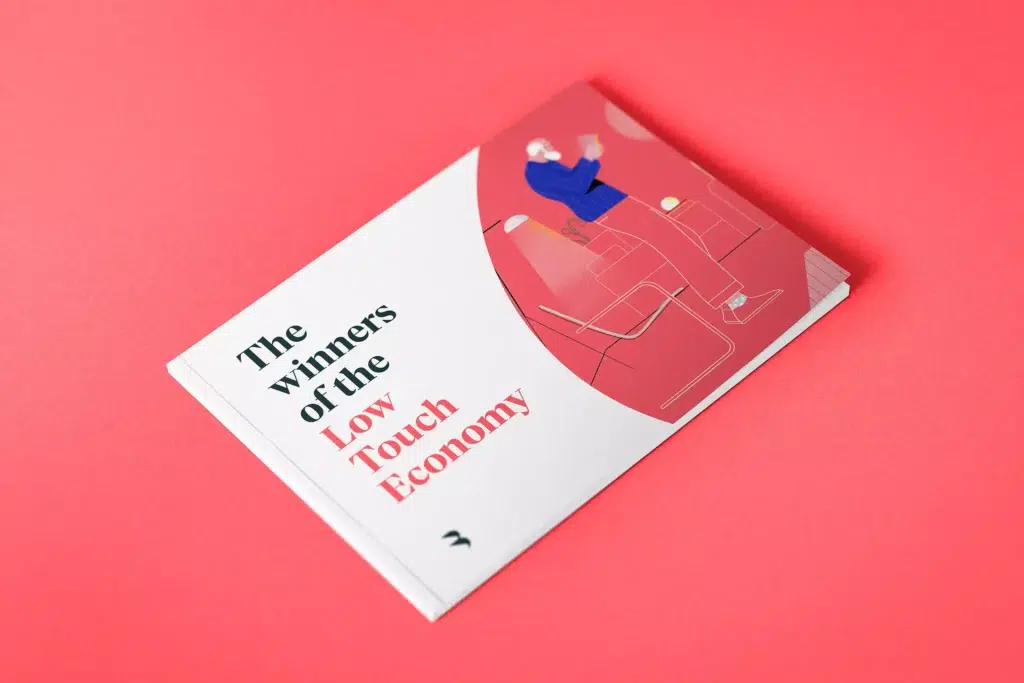All of the exit scenarios currently on the table take into account a slow and bumpy restart of the economy. Businesses of all sizes will need to rethink how to interact with their customers. And while this new Low Touch Economy will need to factor in a whole range of restrictions – physical distancing, large gatherings, travel bans, and hygiene precautions – there are plenty of opportunities to rethink how you can create high-value relations in the year ahead.
Here are several practical tips to help you to do so:
1. Double down on creating trust
Uncertainty makes everyone, especially customers, nervous. Ask yourself, how can my business help ease this anxiety?
Open up and be transparent
We’re all figuring this out together. Tell your customers the precautions you are taking to ensure their safety and the safety of your employees. Do you have workers on the front line or handling deliveries? Consider doing continuous temperature checks throughout the day to check they are symptom-free.
Make it personal
A human-first approach will allow you to show empathy and understanding for the customers you service and the challenges they are facing during this crisis. Demonstrate that your brand is more than a corporate logo by putting the people and employees that are working behind the scenes at the forefront of the conversation and messaging.
Manage the spread of fake news
Previously you might have tended to shy away from getting involved in conspiracies impacting your business on social media, but with all of the misinformation being spread online, it may be time to reconsider that strategy. Your customers are looking to understand what is truly happening in your business and the truth behind the conflicting news floating around. Be clear about your intentions and why you’ve made certain decisions.
2. Swim against the stream of your industry
You and everybody else are forced to innovate (again), this time during a recession. Lean into what makes your brand unique, as opposed to following the same actions and messages of your competitors.
Try on a different value proposition
Many industries operate for years on the same assumptions, falling into the same category norms and succomming to common category pressures. It’s normal for companies to forget to think for themselves in times of crisis. This global reset is the perfect moment to do things differently and create even more value for your client. Ask yourself, what previous rules no longer exist and how can you use this time to differentiate yourself with customers?
Example in retail/logistics: Many products don’t need same-day deliveries. For many orders, this is 100% overkill. Consider switching to slower delivery options. it creates new possibilities: bundle deliveries with other shops, clients can update and add items to their order the next day, you can use alternative and greener transport options that your client value,…
Go to your customer when they can’t come to you
You can do a lot more than just switching to a remote setup to interact with your clients. By rethinking how you solve for the needs of your customers, you’ll be able to deliver value to them in new ways. For example, in the travel and hospitality sector? Why not consider offering advice on creating a hotel experience at home.
3. Test new growth areas to create value
If your current business model does not withstand the current economic climate, why not try a more drastic pivot?
Switch to new client segment
Who says you must continue focusing on your current customer base? Try to focus on a more value segment to do business with or whom might benefit from the services you offer at this time. We are seeing many businesses switch from a B2C to B2B model and visa versa.
Switch to a new product/service
Every business has assets and resources at hand. Evaluate what you are actually good at and use that to inform a new swimlane for you to succeed in. You can keep your current business in tack, while also launching a new brand and whole new revenue stream on top of that.
Two notable examples from the Event business: Stagekings normally build stages for large events. They now switched to a brand new product by designing standing desks for those who work from home. In the same industry als SXS Events had to rethink how they make any revenue. As event producers they had technical video production skills in house. They used this experience to launch a new brand (intelligo) to help people with the creation of video courses online.
In these unprecedented times, it’s important to put the needs of your customers first. Only then will you be able to find success for your brand and come out of this crisis stronger than before.

Don't miss out!
To stay on top of shifts in the low touch economy visit our Low Touch Economy web page and subscribe.


